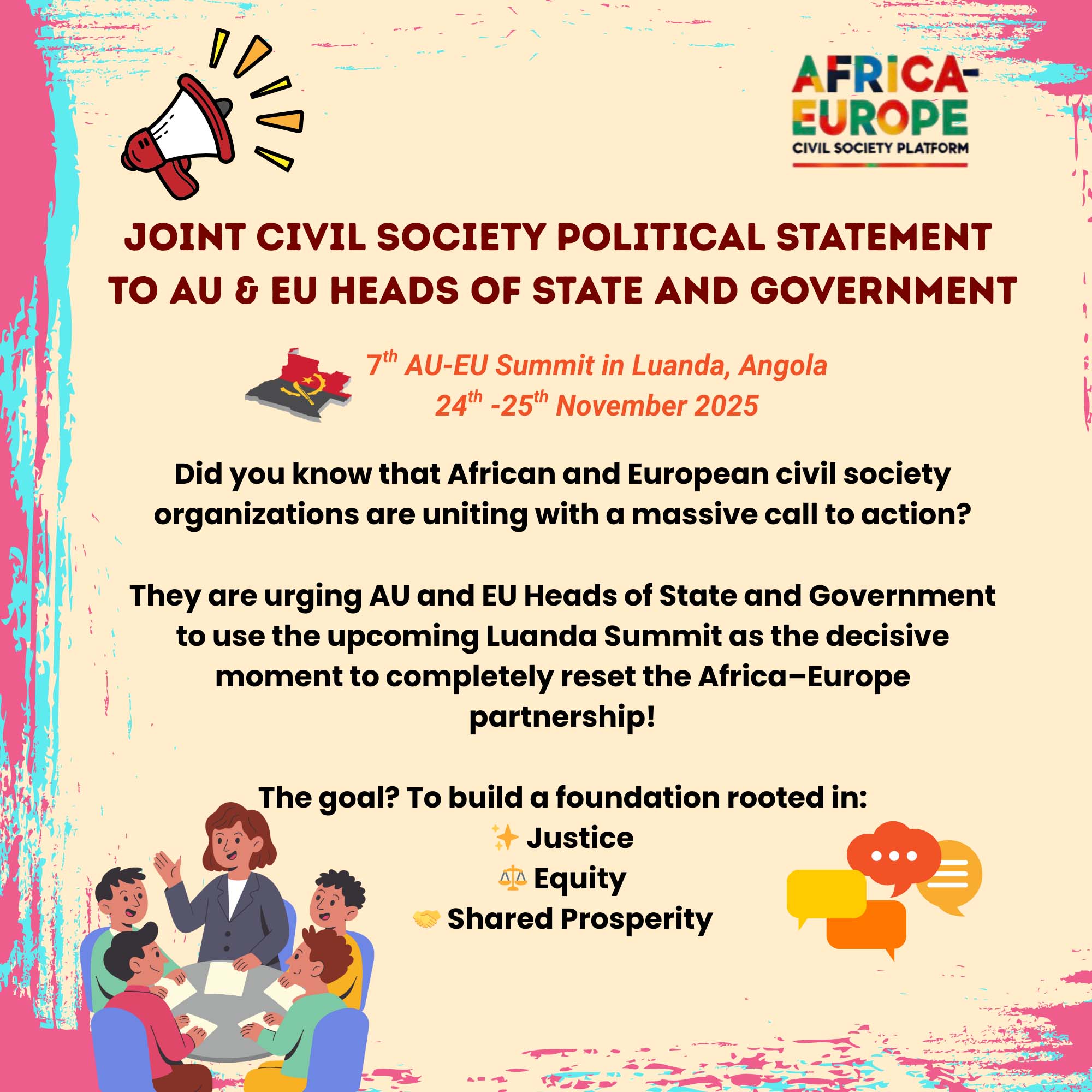
Joint Africa – Europe Civil Society Recommendations
African and European civil society organizations urge AU and EU Heads of State and Government to take full advantage of the opportunity the AUEU Summit offers to build a transformative partnership grounded in solidarity, equity, and justice—one that delivers for people and planet, not profit.
This partnership must also guarantee an enabling environment for civil society and ensure that citizens and their representative organizations can engage freely, safely, and meaningfully in shaping shared futures.
A renewed AU-EU partnership is possible: one that promotes inclusive dialogues with youth, civil society, and diverse stakeholders, one that is committed to equitable and transparent decision-making processes, recognizes power imbalances and the historical debt of Europe towards Africa.
As the leaders of African and European countries, members of the African Union and European Union, gather in Luanda for the 7th AU-EU Summit, we observe a shifting and turbulent situation globally. Now is the moment for a reset. One that builds a genuine, equitable, and sustainable partnership between Africa and Europe — rooted in the principles of policy coherence, justice, ecology, and dignity.
Since the 6th AU-EU Summit in 2022, civil society and youth actors from both the African and European continents have met regularly, building people-to-people connections and organizing themselves to speak with one voice. This has resulted in a proposal for a Civil Society Engagement Mechanism (CSEM)1 in the partnership and the launch of an autonomous Africa-Europe Civil Society Platform. Despite these achievements, we observe the persistent challenges civil society faces in its efforts to participate meaningfully in the Partnership.
Undeterred, we present our common concerns, hopes and forward-looking solutions for the AUEU partnership. Our messages for the leaders gathered in Luanda, collectively built through open consultation in three workshops, prioritize the voice of the most-affected (over louder voices that are already heard), address deep-rooted causes of problems (over symptoms), and focus on transversal issues that touch many of us (over siloed thinking). Our recommendations are grouped into three chapters: Rights and stability; Structural transformations; and Funding. We submit them in the spirit of fostering constructive cooperation with civil society, both as a trusted partner and bridge to community realities.
